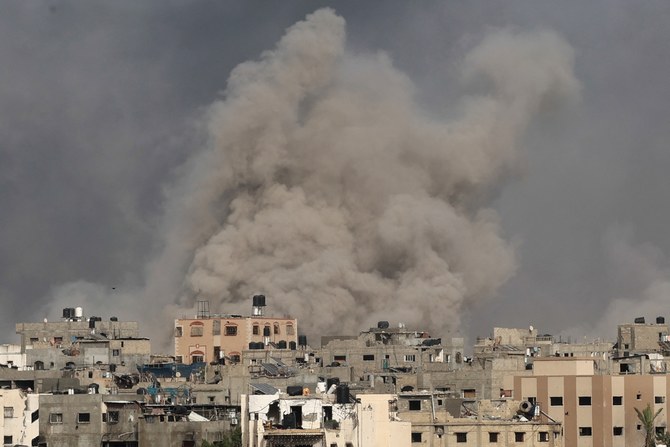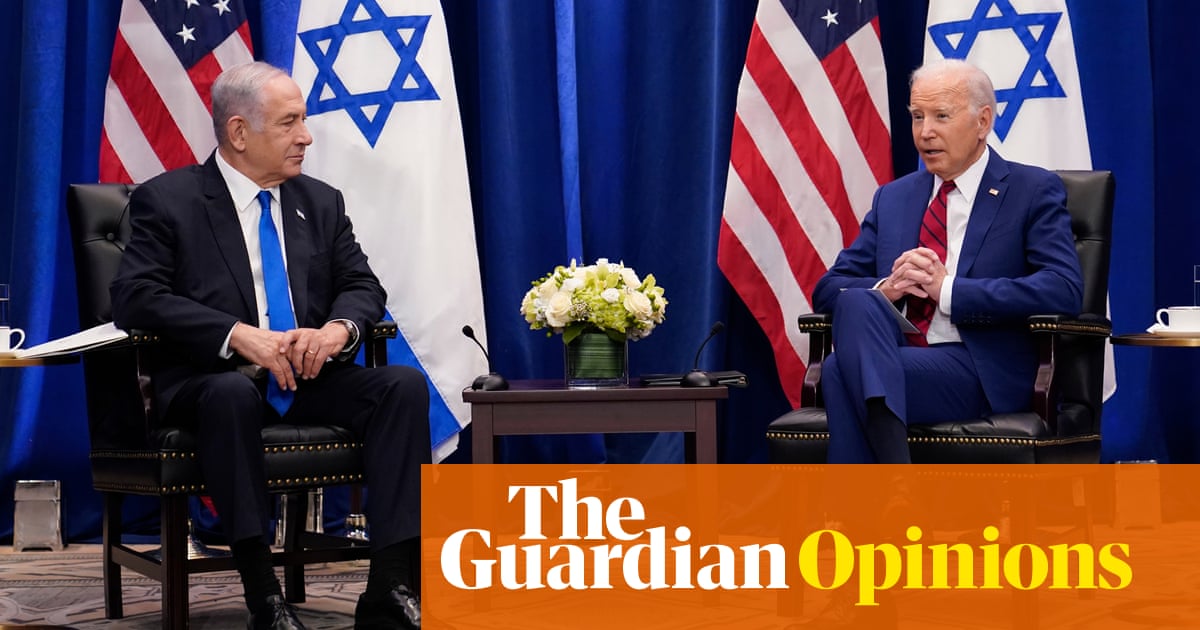
In the last fortnight, two of the most respected human rights organizations in the world separately condemned Western crackdowns on peaceful protests against Israel’s myriad abuses against the Palestinian people.
“University administrations and the police should not silence US students’ peaceful expression of their support for the rights of the Palestinian people amid the atrocities in Gaza and their objection to their universities’ investments,” Tanya Greene, US program director at Human Rights Watch, said in a statement published on May 8.
Two days later, Amnesty International said in a press release: “Over the past six months, there have been alarming attempts by authorities across Europe to silence those who speak out against the killing by Israel of tens of thousands of Palestinians in Gaza, dare to criticize crimes and violations by Israeli forces, or highlight the risk of genocide.”
Both organizations stressed that international humanitarian law protects the rights to freedom of expression and peaceful assembly. The West, which prides itself on these basic freedoms, is willfully denying them when it comes to solidarity with the Palestinians.
For decades, they and their supporters have faced constant demands to condemn violence. Yet Western opposition to nonviolent resistance against Israeli occupation is as old as its opposition to any form of violence, even against the country’s military — enforcer of the longest occupation in modern history — which is permissible under international law.
Western opposition to nonviolent resistance against Israeli occupation is as old as its opposition to any form of violence
Sharif Nashashibi
It is timely to reflect on this as Palestinians marked Nakba Day on May 15, commemorating 76 years since their expulsion from their homeland, upon which Israel was created in 1948.
Most notably, since its inception almost 25 years ago, Western governments have vilified the Boycott, Divestment and Sanctions movement, whose mission is “to end international support for Israel’s oppression of Palestinians and pressure Israel to comply with international law.”
For example, US states have passed anti-BDS laws or executive orders; in January this year, the UK Parliament passed a bill banning public bodies from boycotting Israel; in 2019, the German Bundestag passed a resolution condemning BDS as antisemitic; France has used anti-discrimination laws to penalize BDS activities; and Canada’s House of Commons passed a motion in 2016 condemning any and all attempts by Canadian organizations or individuals to promote the movement.
This is despite David Kaye, UN special rapporteur on the promotion and protection of the right to freedom of opinion and expression between August 2014 and July 2020, saying boycotts are a legitimate form of expression. Anti-BDS legislation appears to “repress a particular political viewpoint,” while failing international legal criteria for “permissible restraints on speech,” he added.
Various Western governments are also spurning diplomatic efforts at bilateral recognition of a Palestinian state, and full UN membership of that state. Just last month, the US vetoed Palestine’s membership bid at the UN Security Council (Switzerland and the UK abstained).
The West’s age-old hypocrisy over Palestine is all the more glaring amid the Russian invasion of Ukraine
Sharif Nashashibi
The US’ justification of its veto mirrors the stance of Israel’s other Western allies: Palestinian statehood can only come about via direct negotiations. Never mind that Israeli Prime Minister Benjamin Netanyahu has repeatedly and clearly rejected such statehood.
In fact, every Israeli government since the country’s establishment has opposed, in deeds if not in words, the Palestinians’ inalienable rights, including the right to self-determination. History has yet to witness a jailer hand over the keys because the prisoner asked nicely.
The West’s age-old hypocrisy over Palestine is all the more glaring amid the Russian invasion of Ukraine. The West gives Ukrainians advanced weaponry to fend off foreign occupation, but Palestinians are slaughtered by even more advanced Western weaponry in support of foreign occupation (dropping some aid amid the bombs is supposed to make up for that).
“We will stand for liberty and freedom today, tomorrow and for as long as it takes,” US President Joe Biden said in July last year. No prizes for guessing which people he was referring to.
While the West embraces Ukrainian steadfastness, it has closed off every avenue for Palestinians to realize their rights, except for negotiations with a demonstrably bad-faith actor. But this is no accident or oversight. For Israel’s Western allies, a “peace process” that is all process and no peace is the least troublesome way for Israel to continue to erase Palestine from the map, as it did with dogged determination during the Oslo process.
It is not that the West believes that Palestinians and their supporters are resisting in the wrong ways — its problem is with opposition to Israel, period. In effect, Israel’s allies will only accept the Palestinians’ submission, while insisting that they would be granted their rights if only they said “please” and “thank you.”
Sharif Nashashibi is an award-winning journalist and commentator on Arab affairs.












